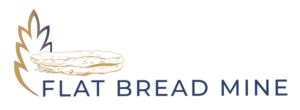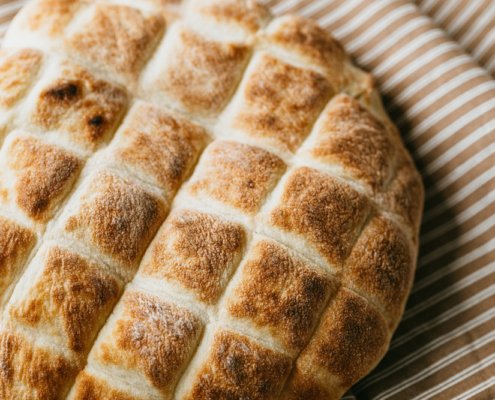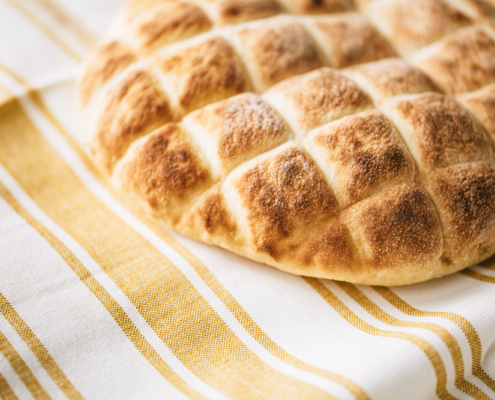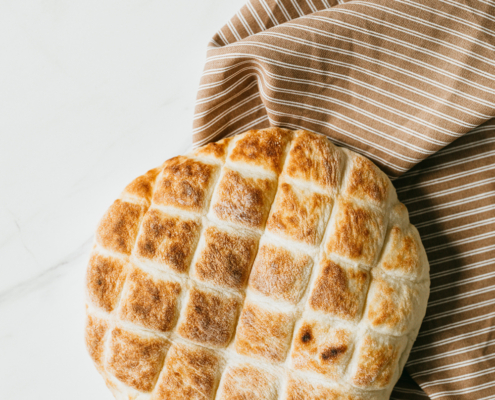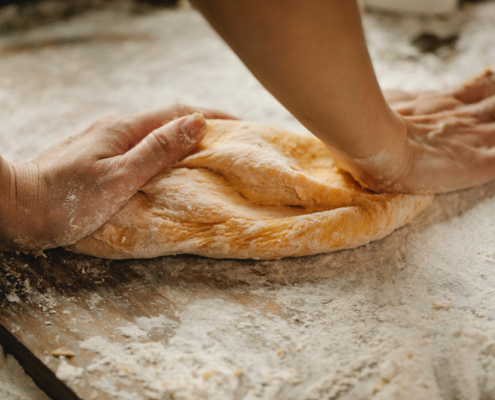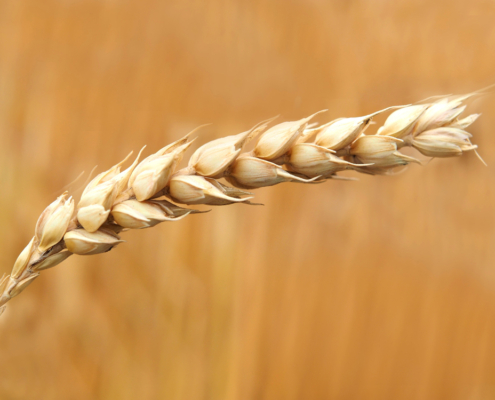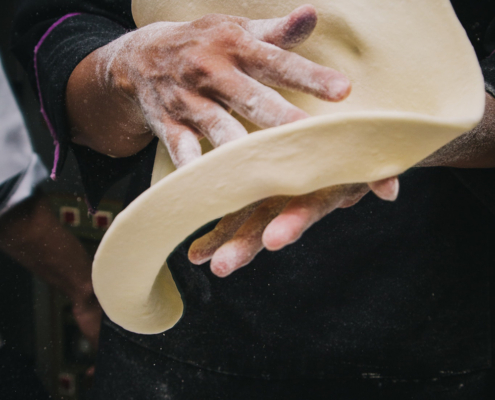Flat bread which is a staple traditional product from the Mediterranean Area (MA) with products from several countries (Italy, France, Greece, Malta, Croatia, Jordan, Egypt, Spain, Portugal and Lebanon) has gained a great attention from both consumers and industries in the MA. The concept of the project FLAT BREAD MINE (FBM) is based on exploring new technologies, processing innovation and new reformulations to develop healthy flat bread for the consumers of the MA. FBM has two meanings, which can be understood as two ambitions: 1) establishing a MINE (source) of information to develop a healthier and safer Flat Bread & 2) customizing the formulation to adapt “FB MINE” to each consumer in order to obtain nutritionally enriched breads. FBM considers both gluten and gluten-free breads and aims at developing sustainable and convenient ways to retail and prepare Flat Bread.
Thanks to the discoveries made by researchers working in north-eastern Jordan, we know that the world’s oldest bread, a flat bread, was baked by hunter-gatherers 14,400 years ago. This predates the advent of agriculture by 4,000 years, and we know that bread production might have very well encouraged these people to cultivate cereals.
Flat bread has been a staple traditional food product from the Mediterranean area, with variants of it from Italy (borlengo, focaccia, torta, pizza, piadina, pane carasau, tigella), Malta (ftira), Greece (lagana, pita, koulouri), Croatia (lepinja, somun, pogosha), Jordan (shrak, taboon, abud, ka’ak, zaatar), Egypt (baladi), Lebanon (khebez, tannour, saj), France (pissaladiere, fougasse), Spain (coca de recapte, torta cenceña or gazpacho, Talo) etc.
FLAT BREAD MINE aims at establishing a mine (or source) of information to develop healthier and safe flat bread while optimizing the flat-bread formulation to a flat bread adapted to each consumer so they’re able to obtain nutritionally-enriched, gluten free, and sustainable foods.
This project received over €2 million of funding by PRIMA with EU funds (Section 1). The thematic area of FBM is “Agro-Food Value Chain 2020” the topic is “1.3.1-2020 – Valorizing the health benefits of the Traditional Mediterranean food products” and the type of action is: Innovation Action (IA). The project is combining the skills, knowledge and expertise of 18 partners from 10 different countries to develop a healthier, sustainable, safe, personalized, and more convenient flat bread. Nine of the partners are research institutes and universities and the rest are industry stakeholders from France, Spain, Italy, Jordan, Malta, Lebanon, Greece, Croatia, Egypt and Portugal.
Impact Pathway
FBM project’s main impacts include:
- bringing attention to the innovation phase by detecting possible innovation that could yield the know-how or patents;
- improving the Science & Technology capabilities, the innovation potential, and the competitiveness of the industries taking part of the project;
- stimulating the leverage effect on private investment as the added-value to develop new equipment and markets;
- stimulation of the cooperation of the companies of academic partners & technical canters at the national and the Mediterranean area levels;
- reduction of the commercial risk by making existing research results applicable across the MA and beyond.
Objectives
• TO ESTABLISH A FB DATABASE
• TO DEVELOP GLUTEN & GLUTEN-FREE FB.
• TO DEVELOP AN INNOVATIVE LOW-PRESSURE MIXER.
• TO DEVELOP AN INNOVATIVE LOW-PRESSURE OVEN TECHNOLOGY.
• TO DEVELOP NEW FB RECIPES AND PROCESSES.
• TO ENSURE FB SAFETY.
• TO DEVELOP SUSTAINABLE AND MARKETABLE FB SOLUTIONS BY THE LCA (LIFE CYCLE ANALYSIS) AND LCC (LIFE CYCLE COSTING).
• TO ASCERTAIN THE ACCEPTANCE OF THE PROCESSES AND NEW PRODUCTS BY CONSUMERS AND INDUSTRY FROM THE MA.
Partners
Industrial Partners
8 Industrial Partners have been engaged in Flat Bread Mine. These partners offer a variety of specialities such as milling, baking, manufacturing, consultancy etc. These industrial partners have a crucial part in the practical approach of the development and enhancement of flatbread production.
Research and Educational Partners
10 Research and Educational institutions are involved in the Flat Bread Mine project. These vary from Universities to Research Centres and are vital for the exploration of new possibilities for flat bread.
The Partnership for Research and Innovation in the Mediterranean Area will devise new R&I approaches to improve water availability and sustainable agriculture production in a region heavily distressed by climate change, urbanisation and population growth
The PRIMA programme is an Art.185 initiative supported and funded under Horizon 2020, the European Union’s Framework Programme for Research and Innovation.



